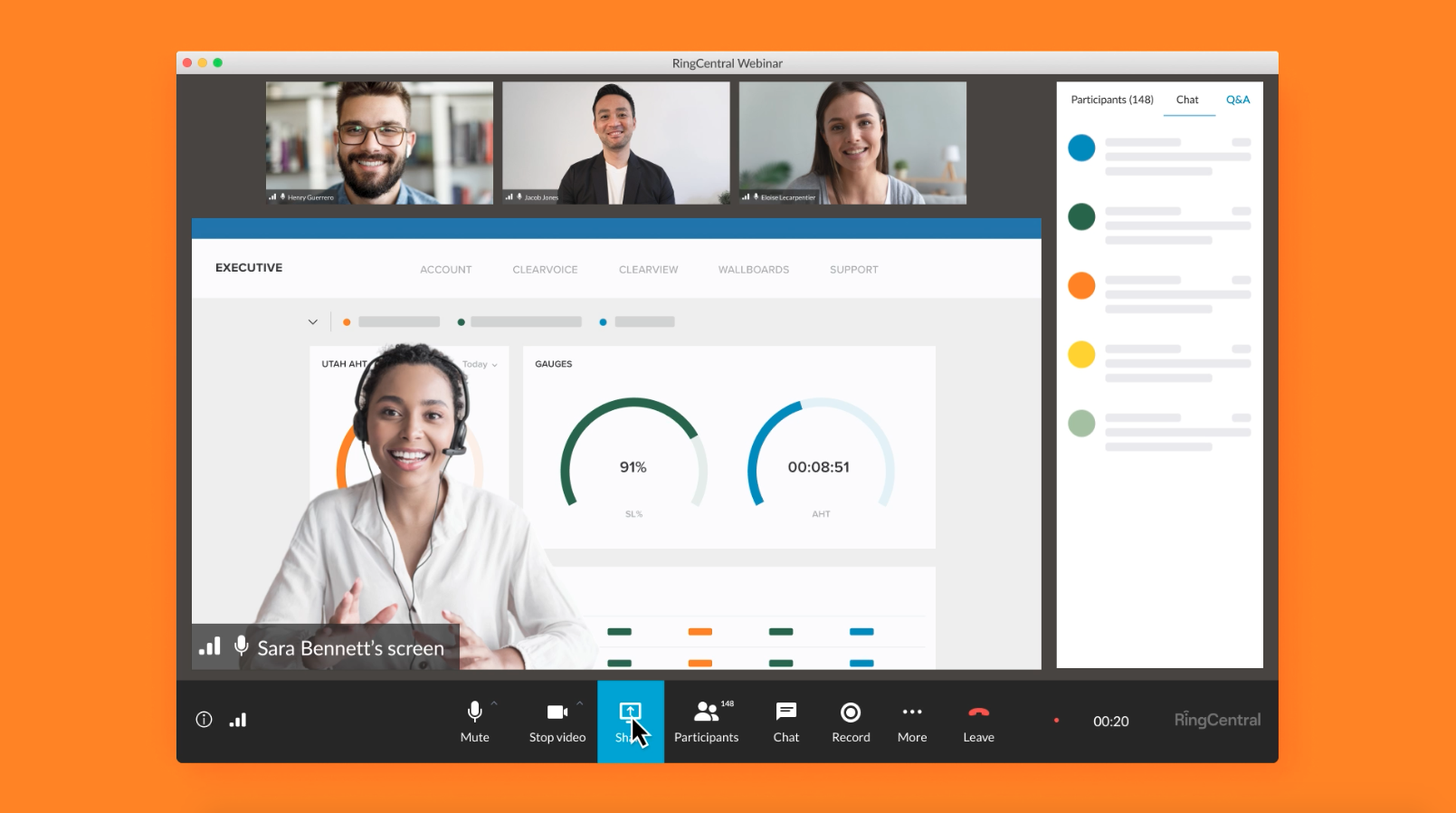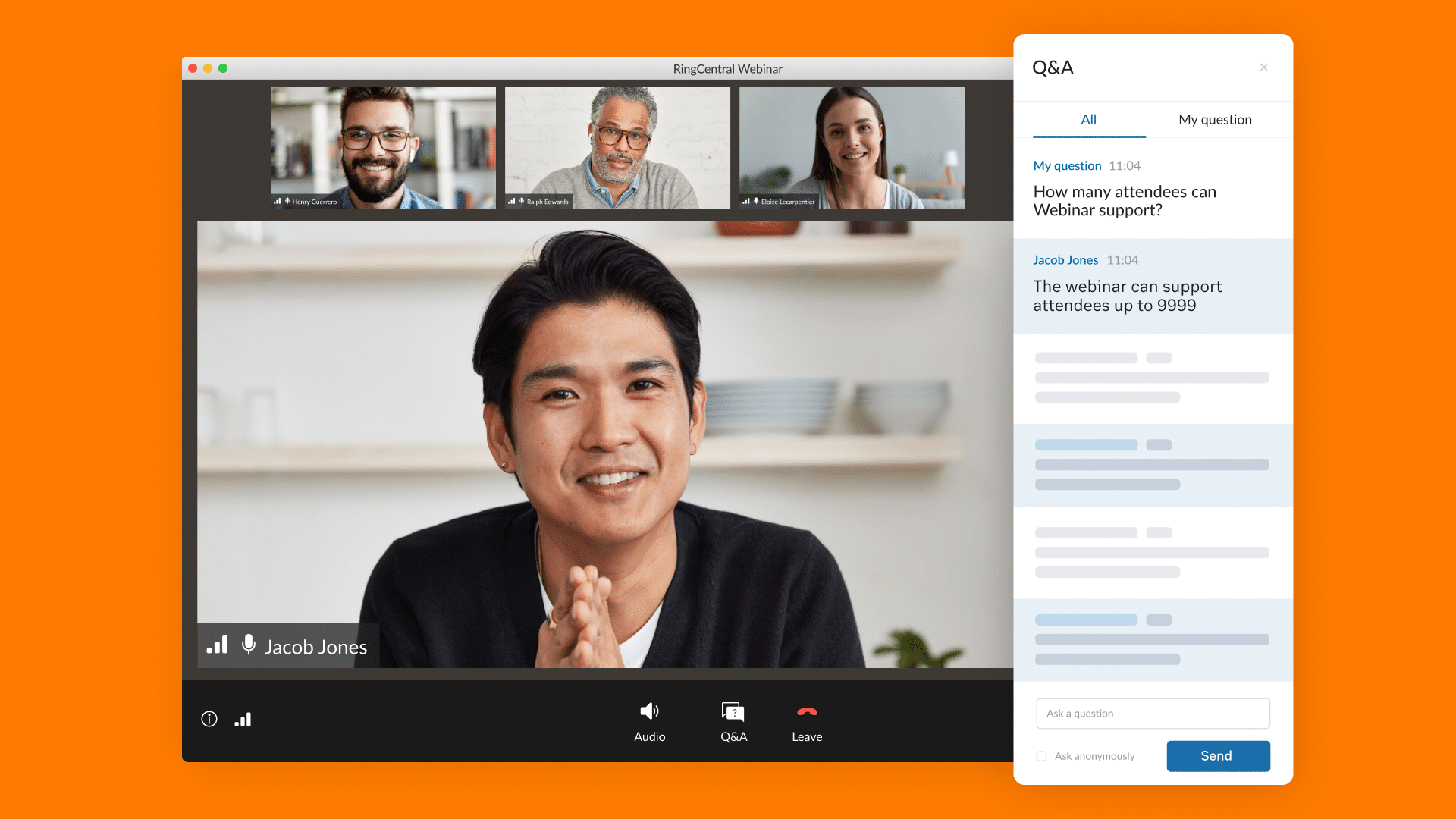Hopin is now RingCentral Events
It’s human nature to long for community — to want to feel closer to people and experiences — to be part of something bigger.
Remember your teenage years? That quest for a group with shared values and interests?
That sense of belonging is crucial to our well-being –– it helps us manage stress, have higher self-esteem, and builds resilience. And the craving for it doesn’t end in adolescence.
Even as adults, we seek acceptance, entertainment, and education from like-minded folks. Scrolling through Twitter, you can see people reaching out in a myriad of ways, asking questions like:
- How do you make friends as an adult?
- How do you get your toddler to stop throwing tantrums?
- Who is your favorite Marvel character and why is it Scarlet Witch?
And Twitter itself is a community for folks to seek answers to life’s deep (and shallow) questions.
But building a community does not just entail gathering people with similar questions, it’s about creating a forum and a safe space for folks to speak their mind, discuss, and debate topics that impact their community.
Now, businesses and organizations can guide people’s quests for a community with virtual events — a basecamp where your attendees can connect and collect a team for their expeditions.
They create a space to engage
Virtual events are a great way to engage a community. Engagement is brought to life with features like live chats, games, breakout rooms, and networking opportunities. Give your audience what they’ve been searching for all along — connection.
And this connection is rooted in trust — people prefer doing business with those they like and trust. It’s not B2B or B2C — it is human to human. And as a human company, you want to show your supporters that you care. In fact, 88% of customers say trust is more important during uncertain times and that their experience with a company is as important as its business offerings.
Through engagement, education, and thought leadership, your company’s interactions with customers play a crucial role in fostering emotional connections that build trust.
In turn, communities boost customer interactions, conversions, and sales. It’s a win-win — you serve your community while you meet your business goals.
They are accessible globally
Well-designed virtual events give your audience time and space to build the community alongside you because they are:
- Accessible to a wider audience
- Budget-friendly for both brands and attendees
- Easier to repurpose content and share it on other platforms
- Flexible when navigating ever-changing public health, climate, and political climates
They make it simple for attendees to watch or replay recorded sessions later, and make it easier to gather metrics over an extended period for your organization’s executives.
The best way to design a virtual event tailored to your community? Ask your audience what they want. You can do this through social media, customer feedback, customer success interviews, and the like. It’s a little extra effort that will strengthen the community flywheel.
Read on to learn how to mix and match virtual event goals that serve your community while reaching your marketing goals.
7 virtual event goals that serve your community
Many communities are self-sustaining thanks to devoted members. But if they are to grow, they need to be fed with networking opportunities where members can share their passion for the brand or organization with like-minded supporters.
If you’re looking for ideas, consider these seven event goals and how to fulfill them through different types of activations:
1. Drive thought leadership
Many organizations use thought leadership to inspire their community and do so through authority and expertise in their field. Events that aim to forward thought leadership often feature:
- Keynote speeches
- Panel discussions
- Fireside chats
Industry-facing conferences support brand positioning and help prop up an organization or individual as an expert on a given topic.
Those in the tech industry for example, follow TechCrunch for all things tech-related. Each year, they host the 5-day TechCrunch Disrupt conference.
Many brands get their start at Disrupt during Startup Battlefield, a business pitch competition for rising tech startups. On the stage with judges, moderators, and competitors, founders use the performative space to create opportunities for their companies while involving the community in the process.
Joey Hinson, Senior Director of Operations at TechCrunch, says, “You want your attendees to come out of the other side of it with a better, deeper, more valuable network and a set of opportunities they didn’t have before. That’s the most important thing in a virtual event.”
Aside from the networking and learning opportunities, TechCrunch Disrupt planners aim to entertain and drive thought leadership by tapping keynote speakers like Conan O’Brien, Kevin Hart, and tech industry leaders to inspire their attendees.
2. Encourage engagement
Virtual events designed around the attendee experience, including online festivals and expos, are often about increasing audience engagement and mobilizing brand ambassadors. Consider selecting a virtual event platform with features that increase engagement, like:
- Live chats for networking
- Games like virtual scavenger hunts
- Online exhibit halls for sponsor booths
- Breakout rooms for specialized learning
Women in Product, a group that equips women to thrive in their product careers, holds an annual conference to provide their community with virtual spaces to meet and learn.
Women in Product combined the goals of encouraging engagement and furthering education to create an event that elevated conversations among attendees, sponsors, and speakers and helped a host of women keep their careers on track, despite the uncertainty surrounding them.
The conference attendees lauded the interactivity of the event with the opportunity to join speakers in Q&A sessions and network with peers. The event facilitated 3,929 peer-to-peer networking meetings and 17,024 chat messages.
3. Educate about a product or service
Product demos and webinars increase brand awareness and purchase intent by sharing educational content about a product or service.
These events are usually informative, interactive, and presented by a subject matter expert. Often billed as trainings or seminars, they seek to give attendees opportunities to understand the products or tools they purchased.
Product demos might be self-guided, live, or recorded and webinars can take many different formats, such as lectures with slide decks, round table discussions, or interviews.
4. Produce sales
Closing deals is challenging, but it can be easier with a little help from events. Product launches and contests tend to be the main format for virtual events that drive sales.
Product launches create a sense of urgency and community involvement that gets people excited about a new product. Contests are excellent lead generation tools that reward participants for taking actions like making a purchase or referring a friend.
Other virtual events that drive sales pipeline can include:
- Customer presentations
- Virtual trade shows
- Product trainings
5. Fundraise for a cause
Nonprofit organizations and communities centered around a shared cause use online events like parties and galas to create exclusive experiences for donors, with the overall goal of raising funds for their target cause. These events strengthen bonds within the community and unite people under a shared love or belief.
When evaluating online platforms for virtual galas, it’s important to find one that includes a donation integration for easy fundraising.
Fundraising events might also feature:
- Virtual silent auctions
- Live entertainment
- Celebrity appearances
6. Entertain an audience
Sometimes it’s simply about building connections by upholding a tradition or having some good ol’ fashioned fun. A few virtual events that seek to entertain include:
- Watch parties
- Concerts
- Game centered gatherings
From online musical productions to comedy shows, virtual entertainment events generate a buzz that brings communities together and keeps them engaged.
7. Further education
When it comes to community building, providing education sends a message to your audience that you want to grow with them.
Everything from office hours and orientations to lectures and workshops can happen online.
These education-based virtual events can be hosted by schools and universities or by companies and communities. For example, companies can host educational events to onboard new hires or conduct employee training. Professional organizations can host webinars and certification courses, whereas nonprofit organizations can educate potential donors and beneficiaries about their causes and services.
These events might feature:
- Virtual tours
- Round tables
- Educational sessions or workshops
- Q&A periods
Customize virtual events to bolster your community
Virtual events help foster community connections and strengthen relationships.
Whether you’re using virtual events to produce sales, fundraise, entertain, or educate your community, there are plenty of goals to mix and match to create a transformational event. By bringing the community together, virtual events have the power to create lasting bonds and make the world feel just a little bit smaller.
If you are ready to create the perfect mix of spaces and goals for your virtual event, chat with one of our team members today to learn how RingCentral Events can help you make your community feel closer.
Originally published Sep 01, 2022, updated Oct 15, 2024





